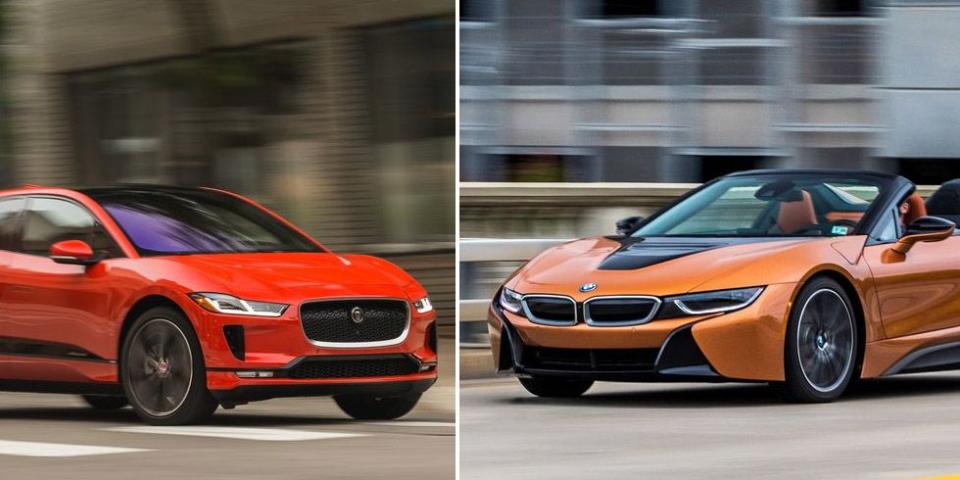BMW Rekindles Love with Land Rover (and Jaguar) to Make Electric Powertrains

BMW and Jaguar Land Rover will co-develop electric powertrains for future cars.
The two automakers are back together after BMW sold Land Rover to Ford in 2000.
No vehicles have been announced yet that will use these powertrains.
Severing a relationship with someone in the same industry can be awkward. They'll still see you at the trade shows, and eventually, you might have to work with them again. So finds BMW getting back together with Land Rover, an ex it dumped 19 years ago. Bygones be bygones, the two automakers are now teaming up on electric powertrains.
Both BMW and Jaguar Land Rover will pool their money to engineer the next-gen motors, inverters, batteries, thermal management, software, and all other necessary bits for future EVs. As in any joint agreement, the goal is to reduce development and manufacturing costs for the unsexy parts beneath a car's skin. Neither company hinted at where these powertrains would end up first, although each will manufacture and tune these components to their own liking.
Possible candidates to receive these components include Jaguar's upcoming electric XJ sedan and the next-generation BMW i3 and i8, which may arrive with the automaker's fifth-generation platform in 2021. This partnership could help BMW make these new i models more profitable, and that goes for the upcoming iX3, i4, and more dedicated EVs, too. It could also help with JLR's financial troubles: Since last fall, the automaker has hacked away at its budget to cope with lagging diesel sales and a looming Brexit. It fired 1500 people last year and announced in January it would cut 4500 more as part of a plan to save some $3.2 billion.
While JLR said the tie-up will improve the company's transition to automated cars, BMW already has a working relationship with Daimler on that subject. It's unclear if the British company will benefit from the supposed three-minute EV charger that BMW co-developed with Porsche or the BMW-Toyota partnership, now in its seventh year, that has prioritized hybrids and hydrogen fuel cells. But all of this goes as a reminder: Never burn bridges in your industry.
In the two companies' prior engagement, BMW V-8 engines powered Range Rovers for most of the 1990s and early 2000s, while Land Rover worked its off-road expertise into BMW's first X5. When BMW sold Land Rover to Ford in 2000, it also hastened the demise of Rover Cars by chucking the company to a venture capital firm. By 2005, Rover and its MG subsidiary were dead and the remains sold off to a Chinese company. Then Tata Motors bought Land Rover and Jaguar from Ford in 2008.
('You Might Also Like',)

 Yahoo Autos
Yahoo Autos 